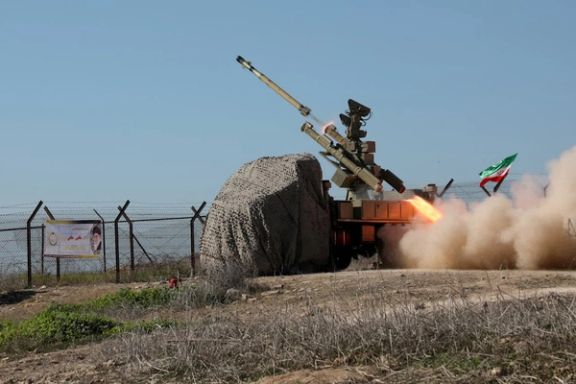"Iran is bearing the cost due to Russia's actions, while Moscow, prioritizing its national interests and its dependency on the UAE, aligns with them on the issue of Iran's three islands," Rouydad24 wrote on Tuesday.
On Monday, the European Union imposed a fresh round of sanctions on Iran, specifically targeting Iran Air and several other entities, citing Tehran's involvement in supplying missiles and drones to Russia. The measures target individuals and organizations facilitating the transfer of military technology.
Rouydad24 also noted that if Iran is truly not complicit, Russia could assist in proving this to the international community, yet it remains silent. "Iran has borne a significant burden as a result of the Russia-Ukraine war despite deriving no benefit from the conflict. The recent reimposition of sanctions on Iran Air, which were painstakingly lifted during the JCPOA, directly impacts the Iranian people," it added.
On Sunday, Iranian Foreign Minister Abbas Araghchi posted on X that during a meeting in New York with Josep Borrell and Enrique Mora, he had reiterated Iran's denial of providing ballistic missiles to Russia.
"I clearly said, and reiterate once again: we've not provided ballistic missiles to Russia. If Europe needs a case to appease Israel's blackmail, better find another story," he wrote.
His remarks followed a report from The Wall Street Journal, in which EU reporter Laurence Norman claimed that during a meeting in New York with EU foreign policy chief Josep Borrell, Araghchi acknowledged that Iran had sent short-range missiles with a range of 250 kilometers to Russia.
Norman wrote, “Senior EU official says Araghchi acknowledged in NY that Iran had sent missiles to Russia of less than 250km range. He claimed they were not 'ballistic' missiles.”
The European Union's latest decision follows earlier warnings from March 2024, when the European Council stated that any transfer of ballistic missiles by Iran to Russia would lead to further sanctions.
In September, following the United States' announcement of sanctions against Iran Air for allegedly delivering ballistic missiles to Russia, the United Kingdom, Germany, and France quickly followed suit, imposing their own sanctions on the airline.
In response, even conservative media outlets acknowledged the situation, attributing the blame to Russia for the resulting consequences. In a commentary titled "New Sanctions for the Sake of Russia," the conservative Nameh News website remarked, "Iran is paying a high cost for Russia's war against Ukraine. Iran has not been gaining anything from Russia's war against Ukraine."
The article directly blamed the missile sales to Russia as the cause of fresh sanctions, including those reimposed on Iran Air, which had been lifted following the 2015 nuclear agreement. Nameh News also stressed that the sanctions directly affect the Iranian people, underscoring the broader consequences of Iran's involvement in Russia's conflict.
Araghchi criticized the move, stating, "Western countries still do not understand that sanctions are a failed tool and have not proven their effectiveness in practice."
Iran Air had been operating direct flights to several major European cities, including Frankfurt, Hamburg, Paris, and London, before the sanctions.
Iran has faced widespread criticism for its deepening military ties for Russia, particularly for supplying drones and missiles, which has also triggered global sanctions.








